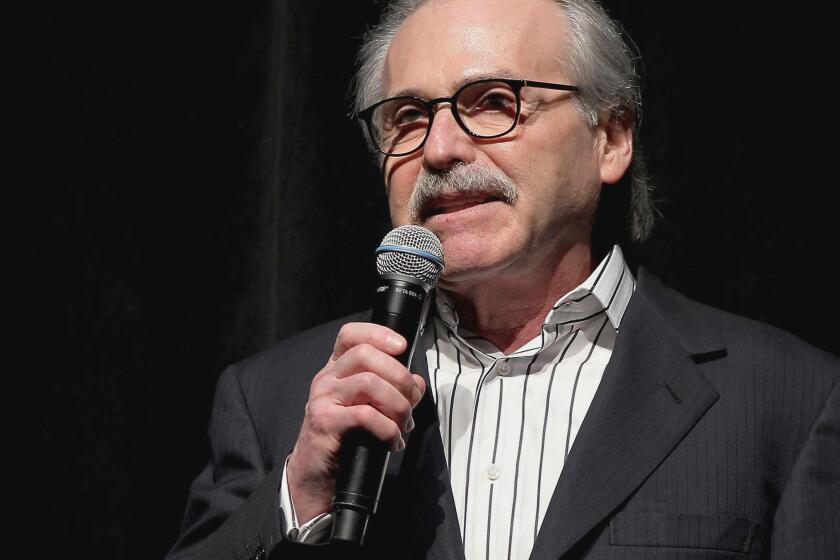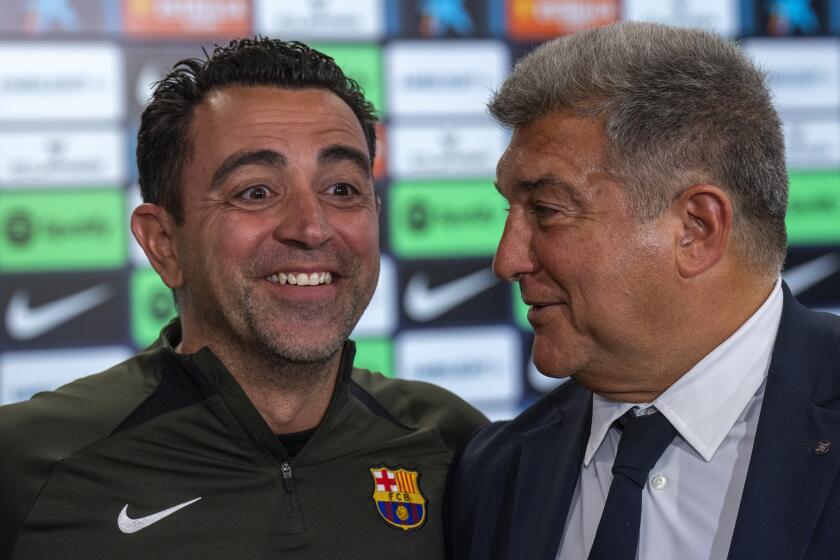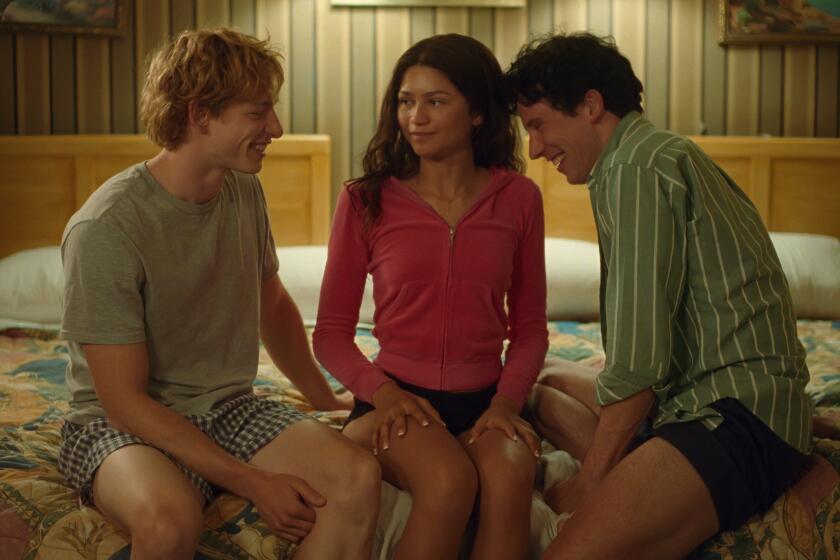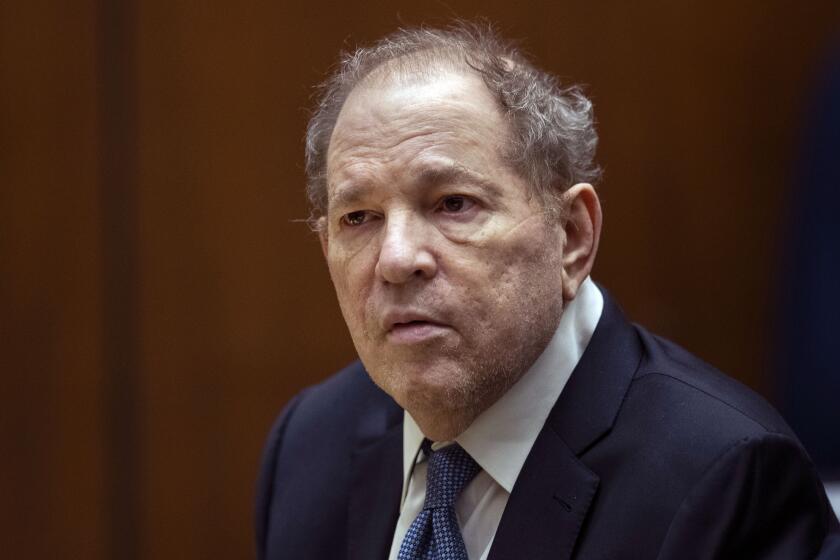Maduro asks military for loyalty, Guaido urges troops to allow in aid
Venezuela’s elected president, Nicolas Maduro , on Sunday said he would not leave power or call new elections because “I don’t accept ultimatums from anyone.”
In an interview with Spain’s La Sexta television channel, Maduro said that US President Donald Trump is imposing “a mistaken policy” on Venezuela and “We’re not going to give in.”
The interview came on the day that the European Union ‘s ultimatum expired for Maduro to convene new presidential elections or it would recognize the head of the opposition-controlled Parliament, Juan Guaido, as the country’s interim president.
In the interview, Maduro repeatedly complained that “Venezuela is a victim” of a campaign of aggression led by Trump and being followed doglike by non-leftist Latin American governments.
“We’re being threatened by the world’s greatest power. The military option is on Donald Trump’s table,” he said, although he added that “there is no reason for this to end badly.”
Maduro, however, praised countries such as Mexico and Uruguay, who have called “a conference” to promote dialogue as the solution to the crisis, and Russia and China do still support the beleaguered Venezuelan government
“I refuse to call elections. There will be a presidential election in 2024,” Maduro said, adding when asked if he was thinking about leaving power “And go where?” and leveling particularly harsh criticism at Spanish Prime Minister Pedro Sanchez for the European ultimatum.
Earlier on Sunday, in an interview with CBS, Trump had said that sending US troops to Venezuela was “an option.”
“Certainly, it’s something that’s on the - it’s an option,” Trump said, adding that Maduro had asked to meet with him, but he rejected that possibility.
“I decided at the time, ‘no’ because so many really horrible things have been happening in Venezuela when you look at that country,” Trump said. “That was the wealthiest country of all in that part of the world which is a very important part of the world. And now you look at the poverty and you look at the anguish and you look at the crime and you look at all of the things happening.”
Last week, the Trump administration leveled huge sanctions at Venezuela’s state-owned oil firm, PDVSA, and Maduro had told the Russian RIA Novosti news agency that he was ready and willing to speak with Trump privately or publicly, in Venezuela or elsewhere, with an open agenda about any issue that the White House wanted to discuss.
Also on Sunday, Maduro insisted that Venezuela’s armed forces (FANB) preserve their “unity” and maintain their “loyalty” at a time when the opposition has increased its calls to the military not to recognize his presidency, calling him a “usurper” of power.
“We must preserve the unity of the Bolivarian National Armed Forces, their cohesion, their absolute loyalty, their courage. You soldiers of the homeland are the maximum guarantee of the union, the integrity and the respect for Venezuelan sovereignty,” he said at a military training exercise in central Aragua state.
“We’re at a time of defending our independence. ‘To be or not to be’ ... to be (independent) or to be a colony, to be Venezuela or to be nothing,” he said, reiterating similar messages he was directing to the military all last week.
Maduro in recent days has been participating in a series of military exercises to counter an alleged foreign invasion that he believes could be mounted after Guaido proclaimed himself interim president on Jan. 23, soon thereafter receiving the recognition of more than a dozen countries, including the US, who was first in line with its support.
Meanwhile, Guaido, on Sunday continued pressuring for the entry of humanitarian aid into Venezuela by announcing a mobilization to demand that the armed forces allow in such aid.
In a Twitter message, Guaido shared a summary of his announcements at the massive demonstration on Saturday, although he said that in the coming days there will be another demonstration to demand that the military allow humanitarian aid to come into the country and called upon them to remain “watchful.”
The interim president also noted the creation of a “national and international coalition” for such aid, which - as he said on Saturday - will come in from three locations: Cucuta, Colombia; Brazil and an unspecified Caribbean island.
Humanitarian aid for the Venezuelan people is one of Guaido’s priorities in “attending to the crisis, reestablishing democracy and achieving freedom,” blaming Maduro - whom he accuses of being a dictator - for the country’s dire situation.
Venezuela, the country with the largest proven oil reserves of any nation in the world, is mired in a severe economic crisis that has resulted in the serious scarcity of medicine and food, a situation that has spurred some three million citizens to flee the country, according to the United Nations.
In the United States, in addition to Trump’s remarks about possibly sending US troops to Venezuela, Florida Sen. Marco Rubio denounced the Maduro government for using a subsidized food program to control the people and calling on the FANB to allow in humanitarian aid.
Rubio said that for years Maduro has used food imported through the local CLAP committees and distributed to poor families to “control” the country and that is the reason the Venezuelan leader has long refused to allow the entry of humanitarian aid.
The Florida senator, a Republican, said on Twitter that Maduro knows that if people don’t depend on him any longer for food and medicine they won’t have any reason to pretend they support him, adding that he has weaponized hunger and illness.
“For years now Maduro has used food as a tool to control #Venezuela. To receive food through the so called ‘CLAP’ program you must not only vote, but vote for Maduro (yes they know how people voted). If you are caught opposing Maduro, you lose access to the ‘CLAP’ program,” Rubio said in a series of tweets.



